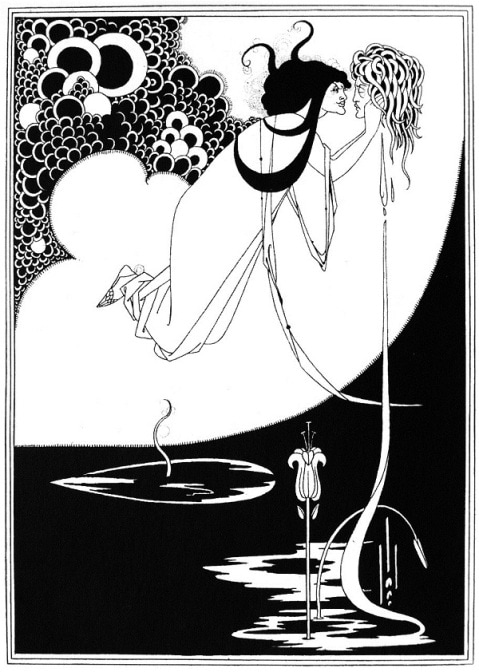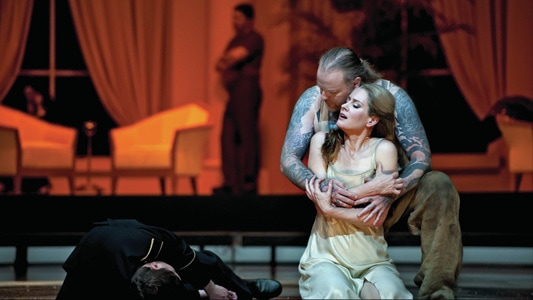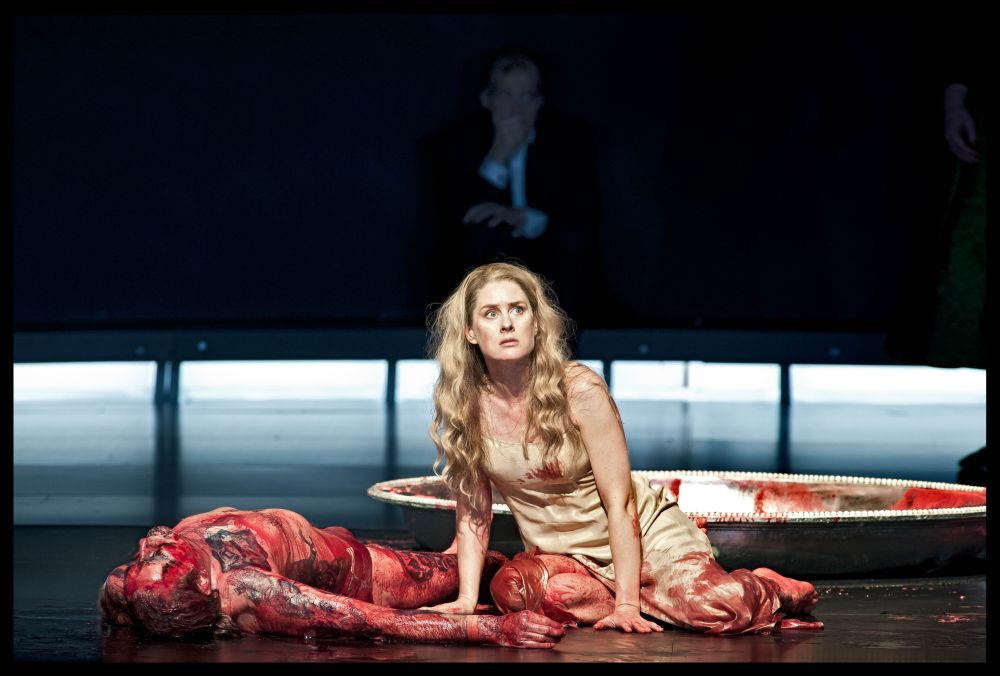|
By Salome I became acquainted with the music of Richard Strauss. Through that opera I followed the way back to the place where Strauss took his libretto - the play of Oscar Wilde. Original written in French, the English translation contains, also without music, some proper power chords - "I hear in the palace, the beating of the wings of the angel of death" is heavy metal-worthy). Together with its successor Elektra, Salome forms an impressive set of shock operas (also highly recommended for those who want to go outside rock-music defined paths). The production of Salome with which Peter Konwitschny made his comeback eight years ago at the Dutch National Opera (and the international opera scene – he had suffered from a depression for 4 years) is remembered for all the wrong reasons: Jochanaan at a dinner at Herod's house with a bag over his head and a title heroine who does not die at the end but walks joyfully of stage with Jochanaan. A Salome that does not end with a fortissimo played C but with "That woman must die!" – shouted by someone in the audience. Alienation can certainly be a quality in a performance but Konwitschny’s Salome (with an happy end!) was certainly not my most cherished encounter with Regietheater. Ivo van Hove's Salome for the Dutch National Opera is in almost everything Konwitschny's opposite, although he gives, like Konwitschny, Jochanaan and Salome an intimate moment together. During the dance with the seven veils we see them dancing (in a video projection - Salome's mind). It stands in stark contrast to the misogynic reli-fundamentalist outbursts that the libretto Jochanaan further provides. In a decadent world where dystopian family relationships create monsters, everyone is guilty. Such a world must go down, so we see a room in ruins at the end. The moon is observed differently by successively Narraboth, Salome and Herod, so we see projections of the moon in different appearances. Van Hove’s production lacks fantasy, he doesn’t add an extra layer to Strauss’s amazing piece, doesn’t need to I hasten to say because we have the music played by the Concertgebouworkest with Daniele Gatti at the helm. Gatti, completely in his element in this repertoire, smears his baton, sensitive where possible, brutal if need be, through Strauss's eclectic score. Besides the orchestra and his conductor, the singers are the real stars of this production. In search of a chicken with teeth, "a 16-year-old girl with the voice of Isolde" (Strauss's description of Salome) one found Malin Byström, a Swedish soprano that looks like the role and was, with her singing and acting skills, more than up for the part of the daughter of Herodias. A few years ago, the tattoos of Evgeny Nikitin (a drummer in a punk band before he converted to opera), were the centre of a scandal in Bayreuth (in his teenage years there was a tattoo on his chest that showed some similarities with a swastika - it meant his farewell from the Festspielhaus). Besides his full-tatooed body, which conflicts with the ivory white skin from the libretto, his voice for Jochanan's role was perhaps a bit too light (it can be annoying, boosting about a glorious past when it comes to art in the present time, but I share this clip of Hans Hotter nevertheless). Lance Ryan (Herodes) and Doris Soffel (Herodias, Salome's mother) were good, in singing more than in acting, though Dutch Opera veteran Soffel (Fricka in Pierre Audi's Der Ring des Nibelungen production) can be Salome's grandmother by now.
The only opera direction I saw from Ivo van Hove, before this Salome, was Der Schätzgraber of Franz Schreker, a production in which ugly scenery and stiff Personenregie stood diametrically on Schreker's sumptuous, lyrical music. With this Salome, Van Hove largely revolves for that failure, although it was not after watching it on a big screen that I became fully aware of that. Initially, this Van Hove production also seemed to be in lack of a good Personenregie. In the theater, on a big stage, the characters can look lost, amidst of everyone who don’t add anything to the drama. On the big screen, with its advantage of close-ups and a smart zooming camera, everything that added nothing to the action and dialogue was cut out of the picture and this production benefited considerably from that. In the theater Byström was good, on the big screen she was nothing less than a revelation - I look forward to the DVD release. That this Salome at the end not only gets Jochanan's head but also the rest of his body feels like a true reward for her interpreter. It is an ending, intense as it should be, worthy of any scene The Walking Dead could come up with. So my initial sceptism after the performance of June 12 - the general feeling that singers and musicians deserved better than this production - disappeared. Time to pay it another visit in the theater.
2 Comments
|
TIMELINE
July 2024
|




 RSS Feed
RSS Feed